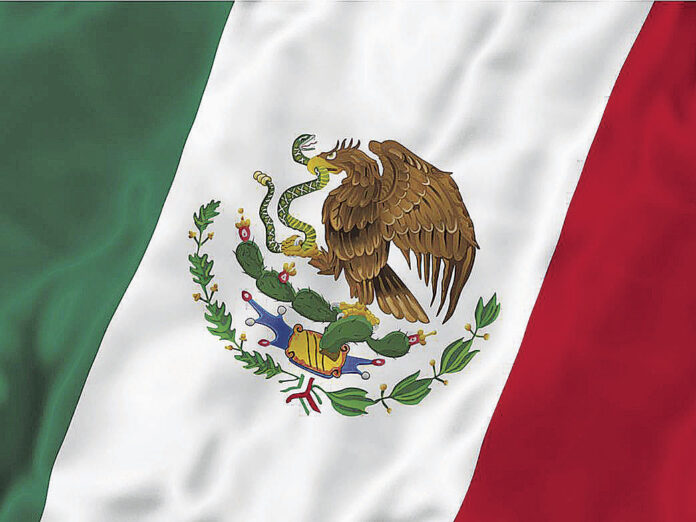McALLEN — The kidnapper’s call on a Sunday afternoon instilled both hope and despair in the 46-year-old father from Honduras.
Luis Brisola’s 20-year-old son Eduardo Rovelo-Cruz has been missing since July 21 when he was abandoned in the brush near Freer by a smuggler. But a man claiming to be holding Rovelo-Cruz against his will promised his son’s safe return in exchange for $2,000 last week.
“When we got the call Sunday from a man saying he had my son, it was a relief to know he was alive,” said Brisola in Spanish. “But he was preying on our desperation.”
The kidnapper gave Brisola instructions to deposit the money using MoneyGram and to call back with the code they would provide him for the other party to withdraw the money. The man promised he would put his son on the phone so Brisola could tell him the code, but when he called back there was no answer.
The money was withdrawn seconds after he deposited it without the need of the code, Brisola said.
“I can’t believe someone would do this. We are devastated,” he said Tuesday after filing a report with the FBI and his local police department in Virginia.
This form of virtual kidnapping is becoming more and more common in South Texas, according to FBI spokeswoman Michelle Lee.
“We are very concerned about information getting out about the identification of family members because we know that they have been targeted by criminals like this in the past, and they are going to continue to do so because they are preying on their vulnerability and their very deep desire and desperation to find their loved one,” Lee said. “They let their guard down, and they get victimized a second time.”
The FBI is the main agency that tracks and investigates these cases, but other local law enforcement agencies have also been seeing an increase in these types of calls. Earlier this year, The Monitor reported on how virtual kidnappers target their victims and how communities with strong ties to Mexico could be at a higher risk of falling for these kinds of scams.
“This is the same thing. It’s someone that is attempting to defraud you by misleading you into thinking that they have kidnapped your loved one, except the circumstances are a little different in that you do have a loved one who is missing and you are still trying to find out where they are,” Lee said.
According to Brisola, the kidnapper said he had acquired his phone number from his son, and now Brisola is wondering if the smuggler or someone in the human smuggling operation who had contact with his son was the one calling.
“It had to have been someone who knew our situation,” Brisola said.
Rafael Hernandez, director of Angeles del Desierto, said there have been many migrant families like Brisola’s who have been extorted this same way after their loved ones go missing. Angeles del Desierto is a nonprofit agency from California that has been conducting search and rescues of migrants for 18 years.
“I don’t know how they are getting these families’ information, but I’ve reported it to the FBI and provided them with phone numbers and information so they can try to catch these people,” Hernandez said. “It’s a horrible crime. These people are preying on the most vulnerable.”
Last year, The Monitor assisted Hernandez with the recovery of Edgar Moscoso, who drowned in a lake near Progreso while evading Border Patrol. Moscoso’s remains were repatriated to Guatemala where his family held a funeral and laid him to rest.
A few weeks later, Moscoso’s brother began getting terrifying phone calls from someone claiming to be holding Edgar against his will. Hernandez said Edgar’s brother relayed to him he could hear a man screaming in the background asking for help while the kidnapper demanded money.
Hernandez said a lot of these cases don’t get reported because the family members being extorted are undocumented or because the kidnappers threaten to hurt them or their loved one. Hernandez said he always tells those who call him seeking help finding a loved one not to give out any personal information to these alleged kidnappers and to never send money without first talking to the person they claim to have.
In Brisola’s case, the alleged kidnapper knew his name and address, so despite his legal status he knew he had no choice but to report it to authorities for his family’s safety. He also said he called Border Patrol and the Honduran consulate office to relay the information he received from a person on July 22 claiming to be a member of the group his son was traveling with before he was abandoned.
“He said they crossed near Roma Thursday morning, and about 1 p.m. they were dropped off on Highway 359 where they started walking north for about five hours. They passed the first ranch and a water dam,” Brisola said. “He said my son grew weak and could not keep up, so they left him under a tree near a ranch before getting to Freer.”
The unidentified person traced the path they traveled northeast from Highway 359 on a map and sent it to him before they lost contact. He said there was a ranch about 10 minutes from where they left him some six hours walking or 40 minutes driving southwest of Freer.
“We don’t know what else to do,” Brisola said. “I keep hoping the phone will ring, and it will be him on the line.”
Anyone with information about Rovelo-Cruz’s whereabouts can reach out to Angeles Del Desierto at (619) 864-4502. Reports of virtual kidnappings can be submitted online at tips.fbi.gov or by calling the nearest FBI office.





